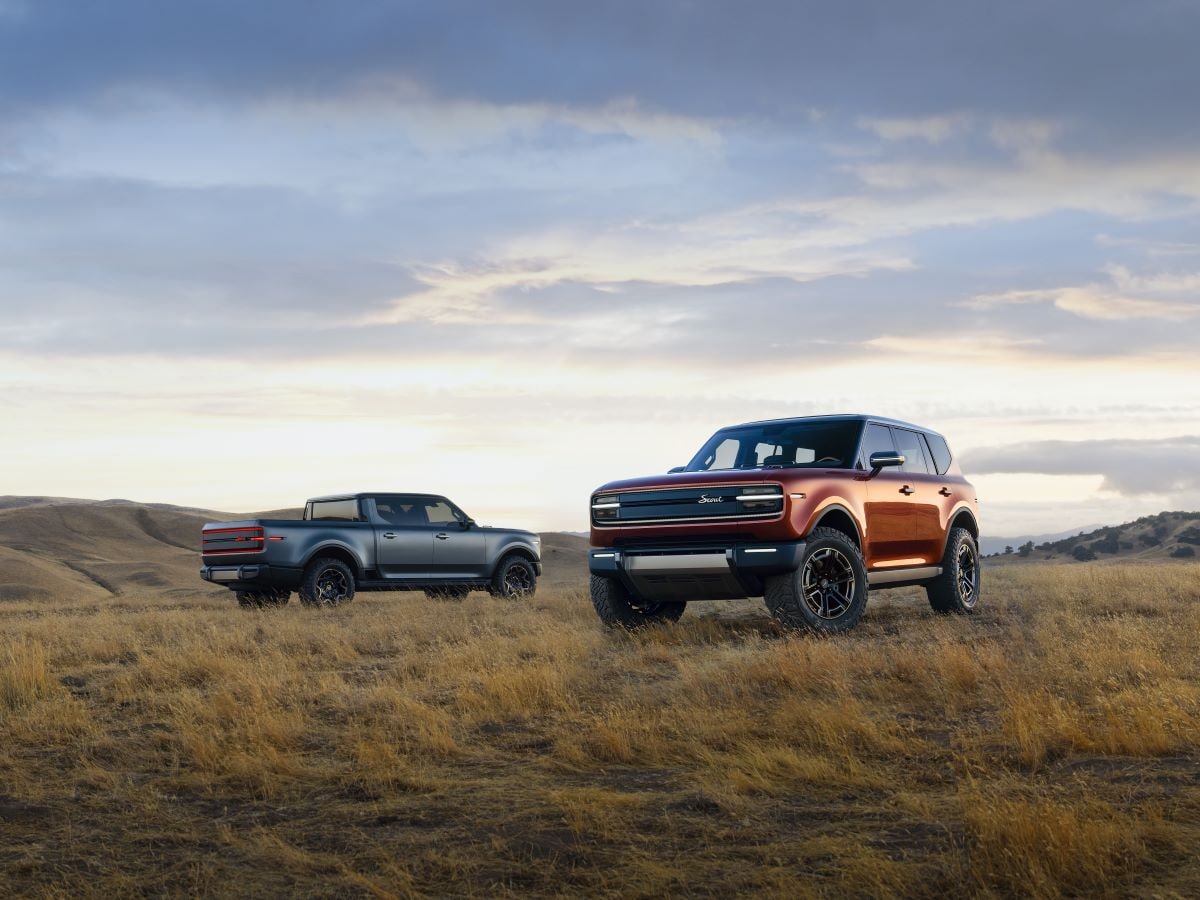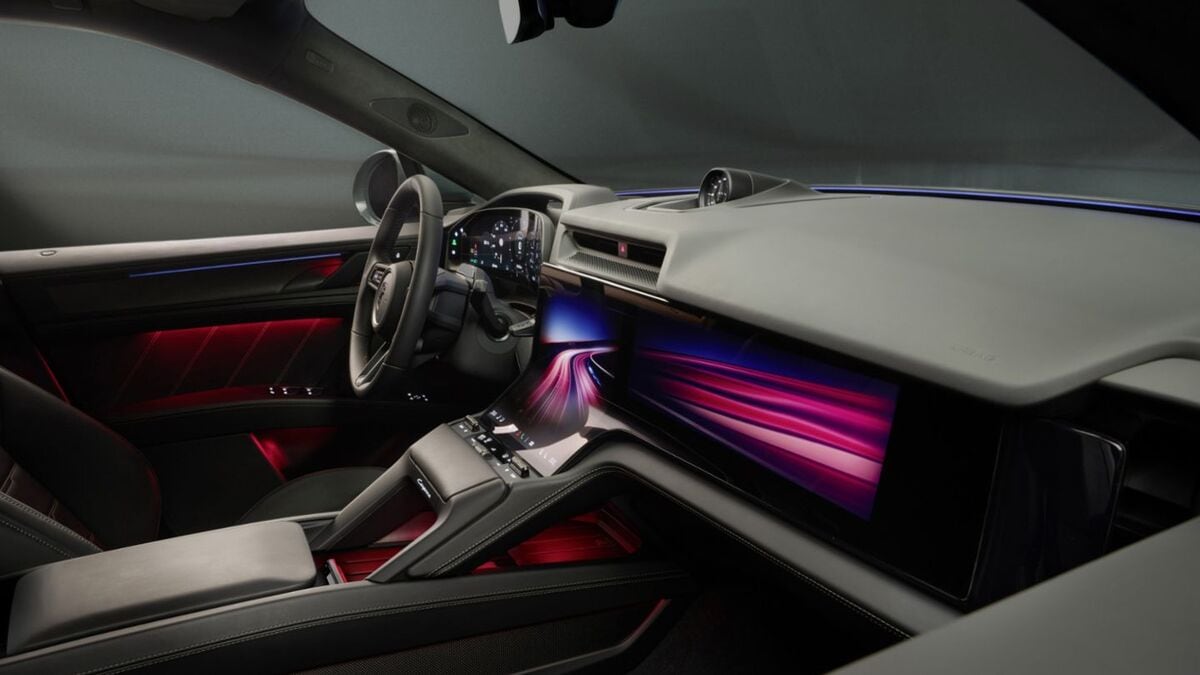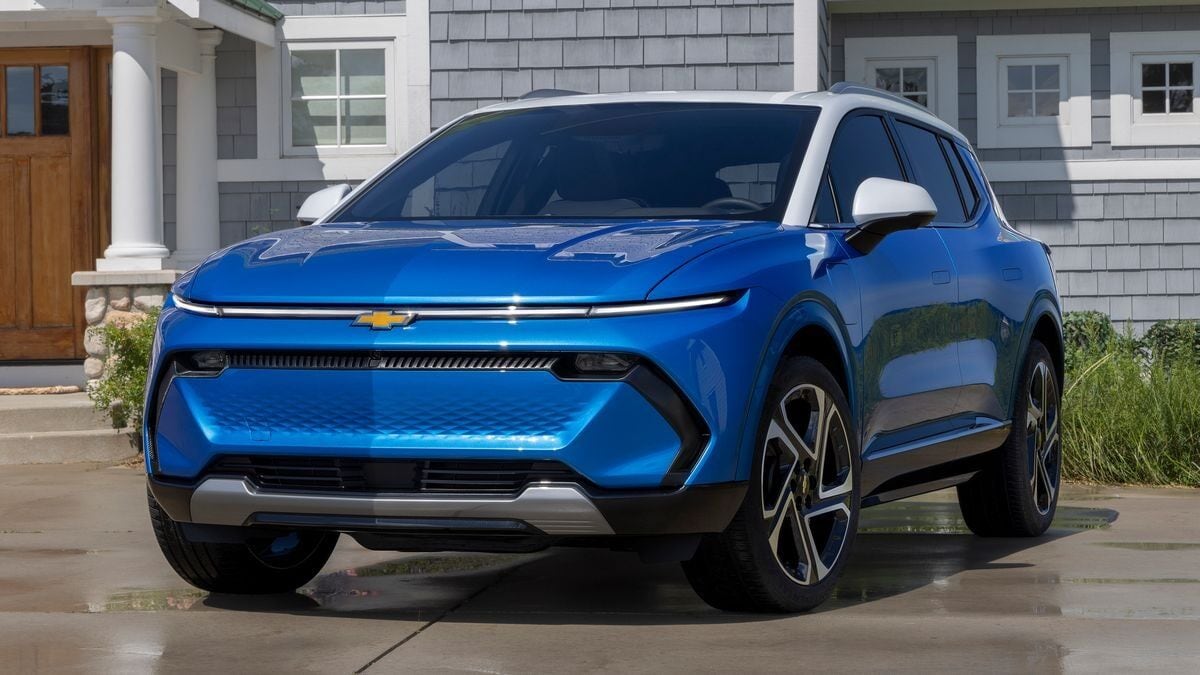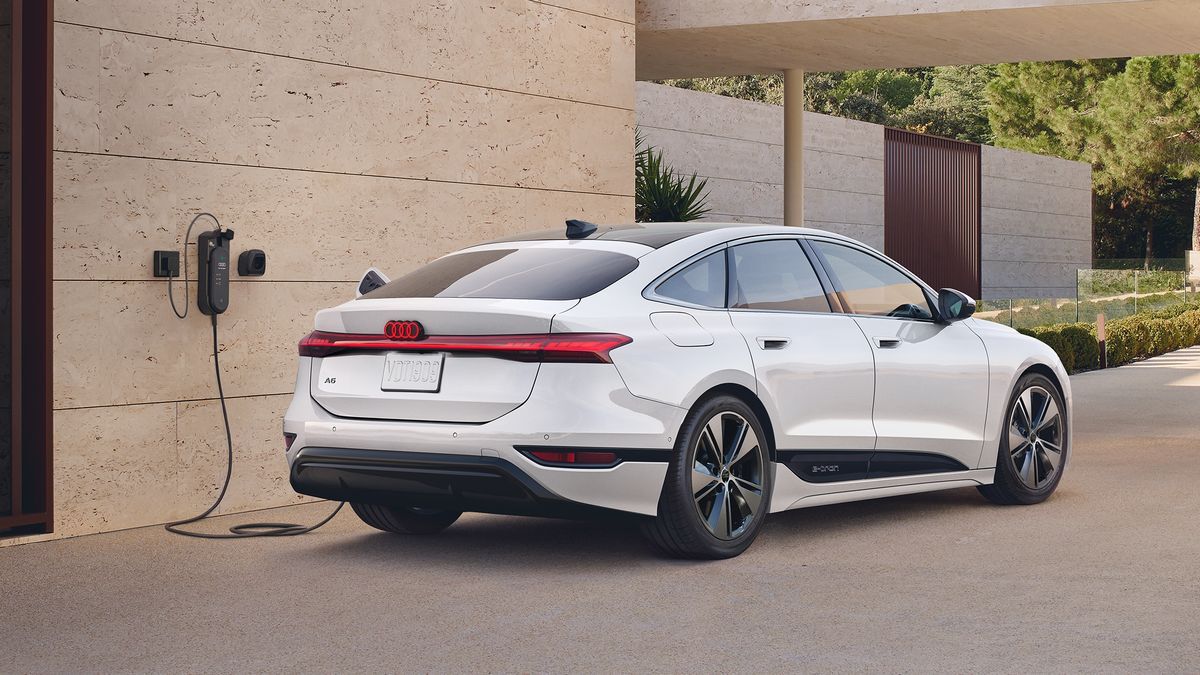A classic name from automotive history was reborn yesterday when Scout Motors showed off its upcoming Scout Terra pickup and Scout Traveler SUV. Spiritual successors to the International Harvester Scout sold from 1960 to 1980; the new Scouts will arrive as pure electric vehicles (EVs) or so-called extended-range EVs with a small gasoline engine onboard to recharge their batteries.
The new company calls itself American. It designs its cars in Michigan and plans to build them in South Carolina. But it is a project of Germany’s Volkswagen Group, which bought the rights to the Scout name long ago and decided to resurrect it fairly recently.
You will not, however, be able to buy Scout vehicles at VW dealerships. The company plans a direct-to-consumer sales model, much like Tesla uses.
Online Sales Only
Scout says both models will start at prices under $60,000 and be available “as low as $50,000 with available incentives.” They will likely qualify for the federal government’s $7,500 EV tax credit, though we won’t know for certain until closer to their release date, expected in 2027.
Scout has already begun accepting $100 refundable reservations for the pair.
“From reservations and vehicle sales to delivery and service, Scout Motors supports the consumer directly,” Scout says. “One company, one app, one login, one experience.” The cars will sell at a fixed price, the company says. “From the start, customers will know what they are paying and can expect full price transparency. Vehicle purchase transactions will be completed in minutes.”
Retail Centers, Not Dealerships
The company says it will “build dedicated retail spaces to engage customers in person.” But those may not be traditional dealerships where vehicles are sold.
Tesla takes a similar approach. It operates its own dealerships in some states. But many states ban companies from directly operating their own dealerships. In those states, Tesla operates “galleries” where customers can see cars and ask questions about them. But the company doesn’t sell cars at galleries – customers are encouraged to go home and order them online instead.
In a handful of instances, Tesla operates dealerships on Native American tribal lands, which are mostly outside the legal jurisdiction of the states that surround them.
Tesla completes more complex repairs in service centers and galleries. But, it sends remote technicians to repair cars at customers’ homes for simpler repairs.
Startups like Lucid, Rivian, and now Scout have begun copying the sales model. Scout believes that “approximately 80% of repair types can be completed outside of a Scout Workshop, whether in a driveway or while adventuring.”
VW Dealers Unhappy
“Selling vehicles direct to consumer has been a pain point for franchised dealers since Tesla disrupted the legacy model,” explains industry publication Automotive News. Tesla, Lucid, and Rivian “have faced fierce opposition from dealer trade groups and state legislators.”
Scout may see the same. Reuters reports, “The National Automobile Dealers Association said it and state associations ‘will challenge this and all attempts to sell direct in courthouses and statehouses across the country.’”
Auto News reports that dealers “have made it clear that they wanted to sell Scouts, with one retailer going so far as to say the network would beg for the opportunity to have such products.”
Some longtime EV advocates, however, see the decision as a victory. Writing for InsideEVs, Kevin Williams calls the move “a big win for consumers.”
He notes that off-road-ready models like the Ford Bronco have proved popular enough to generate backlogs of orders, which leaves them subject to dealer markups. Scout, he predicts, could “be far more conservative” and “keep the pricing at sane, predictable levels.”








